The Death of Traditional Education: How Tech Is Taking Over
For over a century, education has followed the same formula: physical classrooms, scheduled lectures, standardized testing, and chalkboard teaching. But in 2025, that formula is breaking down fast.
Today’s learners aren’t just consuming knowledge—they’re interacting with it. AI tutors, personalized learning platforms, virtual campuses, and skill-specific bootcamps are rapidly replacing traditional schools as the main way people learn.
So, is traditional education dying? Not quite. But it’s definitely being dismantled and rebuilt, brick by brick, by technology.
The Problem With Traditional Education
Before diving into the tech takeover, let’s face the facts: the old-school model is flawed.
One-size-fits-all curriculum
Students are forced into uniform paths regardless of interest or aptitude.
Passive learning
Lectures and textbooks often promote memorization, not deep understanding.
Outdated skills
Schools frequently lag behind real-world demands, especially in tech and business.
Cost barriers
University tuition continues to rise globally, pushing students into long-term debt.
In short, the traditional system was built for an industrial economy. But we’re now in an information and automation age—and the classroom hasn’t caught up.
1. Rise of AI Tutors and Adaptive Learning Platforms
AI-powered tools like Khanmigo (by Khan Academy), Socratic (Google), and ChatGPT plugins have enabled students to learn at their own pace, in their own style, and with instant feedback.
“AI tutors don’t get tired. They personalize, adapt, and scale.“
According to McKinsey & Company, adaptive AI learning tools improve retention by 30% and engagement by 40% compared to traditional classroom settings.
2. From Classrooms to Cohorts: Rise of Microlearning & Bootcamps
Traditional degrees are being replaced—or at least supplemented—by microcredentials, certificates, and hands-on bootcamps.
Examples:
- Google Career Certificates
- Codecademy and Udemy courses
- On-demand platforms like Skillshare and Coursera
These alternatives offer:
- Faster learning cycles
- Lower costs
- Direct-to-job skills
3. Virtual and Augmented Reality in Education
VR and AR aren’t sci-fi anymore. Companies like Meta, ClassVR, and zSpace are already delivering immersive learning environments, especially in fields like:
- Engineering
- Medicine
- Architecture
- History and cultural studies
Why read about ancient Rome when you can walk through it in VR?
4. The Creator Economy Is Reshaping the Concept of Teaching
Education is no longer limited to professors or institutions. YouTubers, streamers, TikTokers, and newsletter writers are educating millions daily.
Platforms like:
- YouTube (e.g., CrashCourse, Veritasium)
- Substack
- LinkedIn Learning
- TikTok tutorials
This decentralized knowledge economy makes information more accessible, engaging, and often more relevant.
5. AI-Powered Assessments and Personalized Curricula
No more standardized tests. Tools like Gradescope and Jasper AI are changing how assessments are:
- Designed
- Personalized
- Graded
- Improved in real time
That means no more “teach to the test”—and more teach to the student.
So, Is Traditional Education Dead?
Not entirely. Universities and schools still matter—for now. But their monopoly is gone. The new education model is:
- Flexible
- Remote-first
- Skill-based
- Individualized
Instead of getting a degree, learners are stacking credentials, building portfolios, and showcasing skills through projects, not papers.
“In 5 years, your GitHub, blog, or startup may matter more than your diploma.“
How to Adapt to the Tech-Led Learning Revolution
- Use AI tools like ChatGPT or Notion AI to study smarter
- Build your digital portfolio on GitHub, Behance, or Medium
- Join learning communities (Discord servers, Reddit forums, mastermind groups)
- Pick microcourses aligned with your goals—not just what your school offers
A New Era of Learning
This isn’t the end of education. It’s the beginning of learning that’s more democratic, relevant, and tailored to the real world.
Whether you’re a student, educator, or lifelong learner—embracing the shift is your competitive edge.
Related Articles You Might Like:
Share this post:






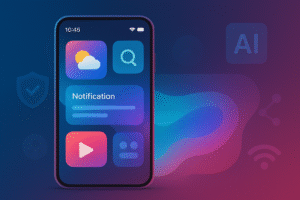

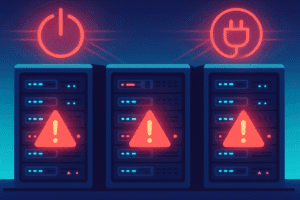
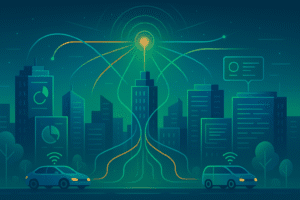
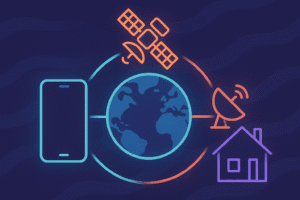
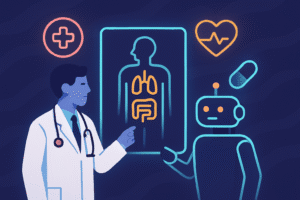
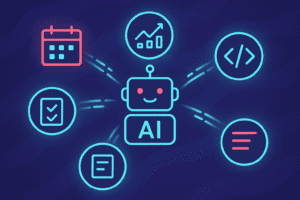

Post Comment